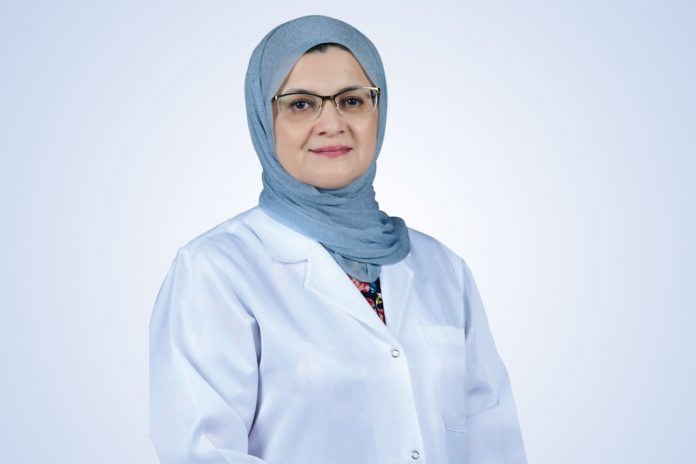Health is one of the key factors that determines the quality of life one is living. On the occasion of International Women’s Day, we speak to the Obstetrics and Gynecology Consultant at Middle East Hospital, Dr. Sahar Zaki Al Marsoomi. She tells us about the essential practices for women to maintain their health and answers questions related to Poly Cystic Ovarian Syndrome, feminine health misconceptions and more.
Dr. Sahar Zaki Al Masoomi has over 20 years of experience in the field of women’s healthcare. The doctor is specialised in providing care for pregnant women throughout their pregnancy through to their delivery. This is in addition to her specialisation with C-sections, dealing with gynecological problems and menstrual irregularities.
She states that the patient’s age and health are two of the biggest determining factors when deciding how often you must visit your gynecologist for a check-up. “Seeing a gynecologist frequently ensures that health problems are detected, diagnosed, and treated early. According to medical experts you should have a pelvic exam and well women checkup once every one to two years. These check-ups should be more frequent if you have any health issue,” explains Dr. Sahar.
Women have long been known to care for all those around them, but it is imperative that they too make their health a top priority as having good health is, naturally, vital. “There are a few things that women can keep in mind. First and foremost, they must eat and sleep well. They must also hydrate their body, exercise regularly, reduce stress, quit smoking, and keep their hands, body, clothes, bedding, food and other belongings clean to prevent diseases,” she advises.
There are several misconceptions when it comes to women’s health and hygiene. These include the misconception that you require special products to clean your privates, that vaginal discharge means you have a yeast infection, that you must get a pap smear every year or that if you have the HPV virus you have cervical cancer. “In addition, it is a misconception that you must avoid exercising while having your period, or that pain during your period is normal and that you must get used to it,” she says.
The number of patients with Poly-Cystic Ovarian Syndrom (PCOS) has been growing across the world. Dr. Sahar states that one of the best practices that patients can follow is to reduce stress levels by engaging in activities that keep them happy, being with people they love and maintaining a healthy work-life balance.
“A PCO journey may be long and tedious, but it is important for you to stay strong and never give up. You can do it! Be sure to make changes in your lifestyle such as having a healthy and balanced diet, increase water intake and exercise. In addition, be sure to monitor your blood pressure, sugar, and cholesterol levels as they may require certain medications,” she explains.
On the occasion of International Women’s Day, Dr. Sahar urges women to make their health a priority. “Every year on March 8, we mark International Women’s Day to celebrate and commemorate women’s achievements,” she says. “Women around the world manage responsibilities at work and home. In an effort to achieve work-life balance many women neglect the one thing they shouldn’t – their health.”
“On this occasion, I would like to remind you to love yourself, understand your worth and value, teach people how to treat and respect you, and last but most importantly, get regular check-ups. Be sure to have your pap smear and mammogram in addition to checking your blood pressure, blood sugar, cholesterol levels, teeth and eyes. Put your health first,” she concludes.


































